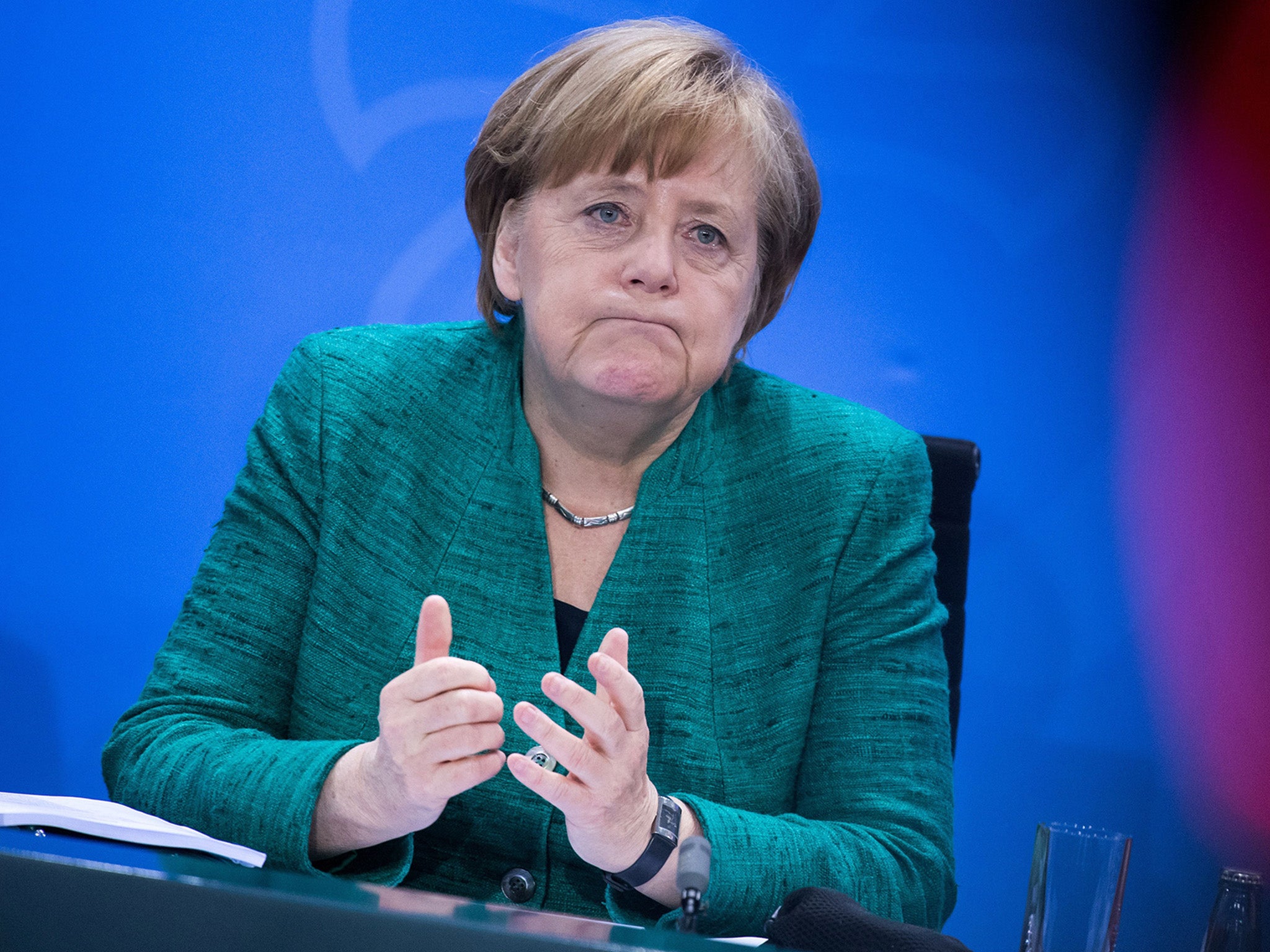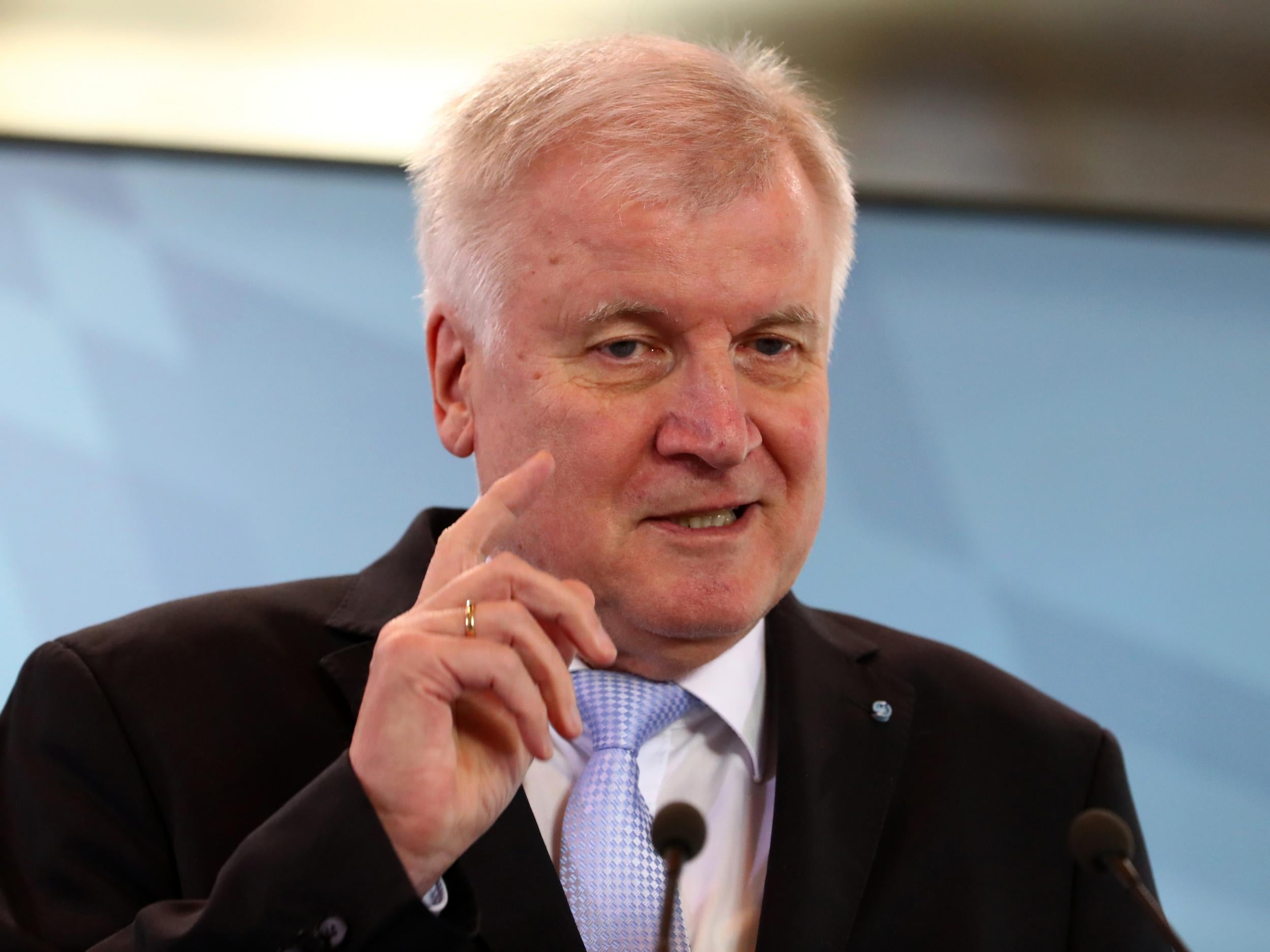Angela Merkel’s future uncertain as party faces split over immigration policies
Rogue conservative interior minister planning to force through tough immigration policy

Your support helps us to tell the story
From reproductive rights to climate change to Big Tech, The Independent is on the ground when the story is developing. Whether it's investigating the financials of Elon Musk's pro-Trump PAC or producing our latest documentary, 'The A Word', which shines a light on the American women fighting for reproductive rights, we know how important it is to parse out the facts from the messaging.
At such a critical moment in US history, we need reporters on the ground. Your donation allows us to keep sending journalists to speak to both sides of the story.
The Independent is trusted by Americans across the entire political spectrum. And unlike many other quality news outlets, we choose not to lock Americans out of our reporting and analysis with paywalls. We believe quality journalism should be available to everyone, paid for by those who can afford it.
Your support makes all the difference.Angela Merkel’s government is fighting for its political life as a row over immigration and asylum policy threatens a historic split in the German chancellor’s conservative bloc.
Ms Merkel’s allies in the state of Bavaria, the CSU party, are pushing a new plan that would turn away more asylum seekers at Germany’s borders – at odds with her welcoming refugee policy.
The CSU, which is traditionally more conservative than the CDU party that organises in the rest of Germany, lost ground to the far-right AfD in parliamentary elections last year and fears a repeat in regional elections in October.
The contentious new immigration policy, designed in part to head-off the AfD, was proposed by Ms Merkel’s CSU interior minister Horst Seehofer, but its publication has been suspended after an intervention behind the scenes from Ms Merkel.
The plan would see refugees turned away at the borders if they were already registered in another EU country or lacked the correct documentation. But the chancellor is loathe to take any action that is not coordinated with Germany’s EU allies and reportedly sees the country’s approach to asylum as a part of her legacy.
“I believe [Merkel] will try to the very end to find unity in the matter,” CDU home affairs spokesman Mathias Middelberg said. But asked if the alliance with the Bavarian CSU could break, he told Deutschlandfunk radio: “That can’t be fully ruled out.”
We have to think about our own population and not just Europe
The CSU and CDU have been inseparable since 1949 and the CDU does not stand candidates in Bavaria, though they are technically separate parties.
Mr Seehofer has threatened to use his prerogative as head of the interior ministry to propose the policy by himself without support from the chancellery – a course of action that would force Ms Merkel to either dismiss him or cave.
The rogue interior minister has the full support of the Bavarian state government, which is also run by the CSU.

“We have to think about our own population and not just Europe,” Markus Söder, Bavarian CSU regional government said.
But the chancellor also faces pressure from her not to give in to the right-wingers from her coalition partners the social democrats (SPD). SPD leader Andrea Nahles said: “We won’t allow the panic of the CSU’s regional government to hold Germany and Europe hostage.” The party’s finance minister Olaf Scholz added: “The task of governing our country is not an episode of Game of Thrones, but a very serious matter. Those involved should not forget that.”
Snap federal elections are likely if the government collapses because Germany’s constitution makes forming a minority government very difficult. The current so-called “grand coalition” only came after months of talks and the exhaustion of other options, and was in itself a bid by the parties to head off fresh elections.
Ms Merkel’s anti-immigration CSU allies have enjoyed support from outside Germany too: Mr Seehofer met with Austrian chancellor Sebastian Kurz this week and talked about the formation of an anti-immigration “axis” to push restrictive borders across Europe.
Join our commenting forum
Join thought-provoking conversations, follow other Independent readers and see their replies
Comments